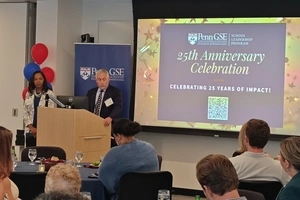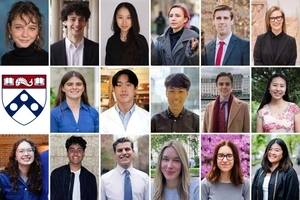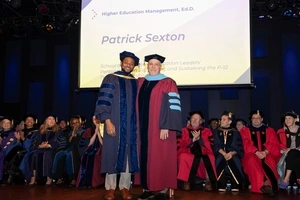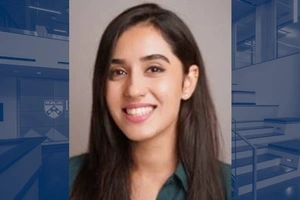Rahshene Davis - Developing Change Agents in Schools
Teaching English to Speakers of Other Languages (TESOL), M.S.Ed., 2003
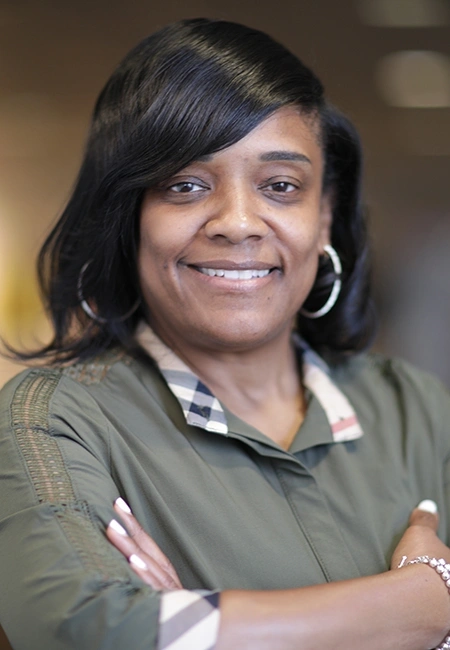
When The School District of Philadelphia moved to virtual learning this spring, Rahshene Davis, GED’03, assisted principals as they marshaled staff volunteers to ensure each student in the District’s Learning Network 2 got a Chromebook. While some students already had school-issued devices, many did not.
Davis oversees the thirteen K–8 schools in West Philadelphia as assistant superintendent of Network 2, where most schools serve a low-income population and students of color make up the vast majority of the student body. While the successful distribution of technology this spring made her schools better prepared for a fully virtual start of the new academic year, for Davis, the circumstances of COVID-19 and civil unrest around race have coalesced, with the pivot to distance learning spotlighting disparities.
“Now that inequities are front and center, what are we going to do about it?” asks Davis, who earned her master’s in Teaching English to Speakers of Other Languages at Penn GSE.
“The role of principals is ever more crucial in these times of COVID and of students speaking out about racism and bias and having conversations with leaders to seek change.” —Rahshene Davis, GED’03
Her answer is to continue her focus on developing the most influential “change agents” that schools have: principals. Having begun her career as a teacher at the Henry C. Lea Elementary School, part of Network 2, Davis went on to work as a national literacy consultant and to study school reform. Her wide-ranging experiences taught her the importance of school principals, and she took on the role at University Heights Charter School in Newark, New Jersey, earning recognition for breakthrough student achievement gains.
Now, as assistant superintendent, Davis mentors Network 2’s principals, drawing inspiration from her work as a current student in Penn GSE’s Mid-Career Doctoral Program in Educational Leadership. “The role of principals is ever more crucial in these times of COVID and of students speaking out about racism and bias and having conversations with leaders to seek change,” she says.
Drawing upon her timely thesis, which considers the anti-racist leadership practices of Black district-level leaders who seek to dismantle systemic racism in schools, she is making anti-racist education a priority. She has shared a self-care checklist by Dr. Howard Stevenson, Constance Clayton Professor of Urban Education at Penn GSE, for navigating racial stress. She sees the Responsive Math Teaching project, led by a team from Penn GSE in Network 2’s schools, as an important partnership that fosters equity by promoting high-quality math instruction for students of color. “The program is aligned with the instructional vision that I have for my network, which is to improve teaching and learning,” she says. To help principals navigate the many changes they have faced, she shared Penn GSE Professor of Practice Sharon Ravitch’s “flux pedagogy” for leading through uncertainty, and Dr. Ravitch joined an April Q&A with principals via Zoom. In addition, Davis is helping principals to harness the benefits of Zoom to engage parents in new ways.
“I’m helping leaders see there are things you can continue to do even when we go back to face-to-face,” Davis says. “We should stay connected.”



